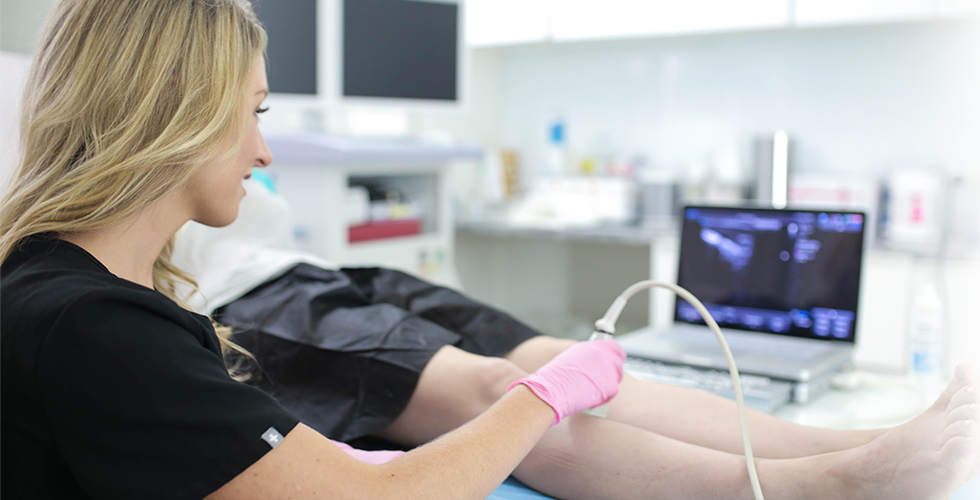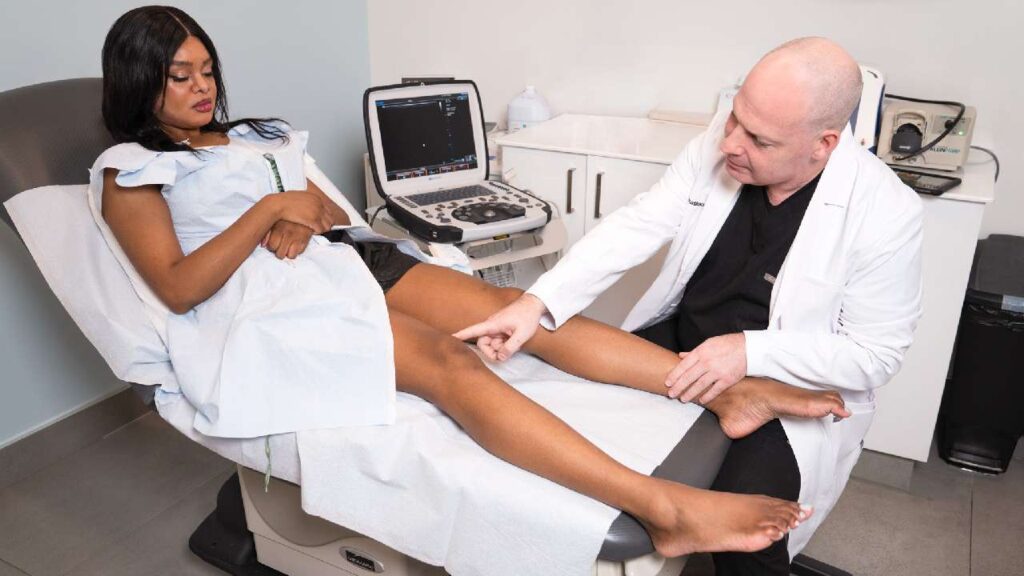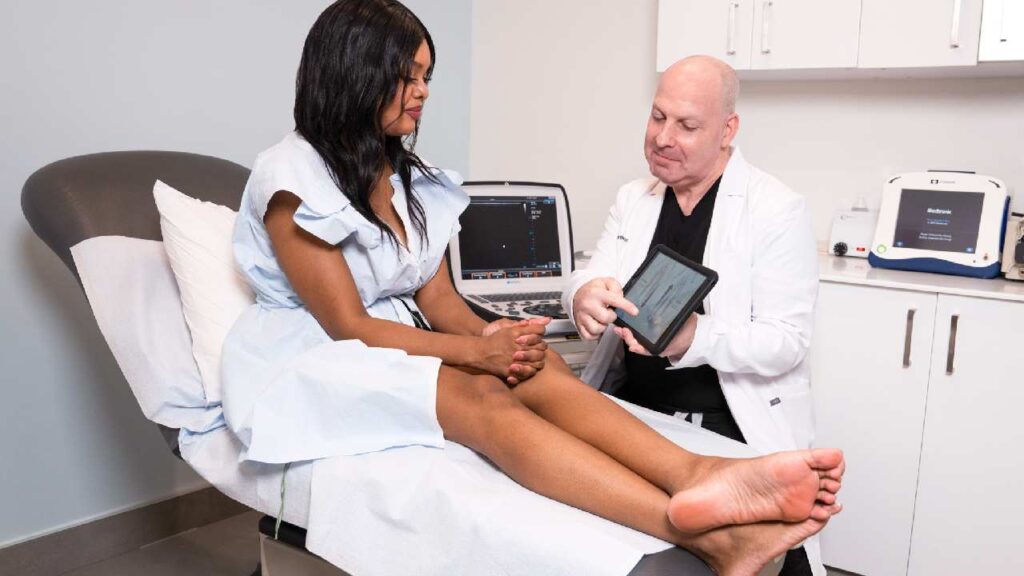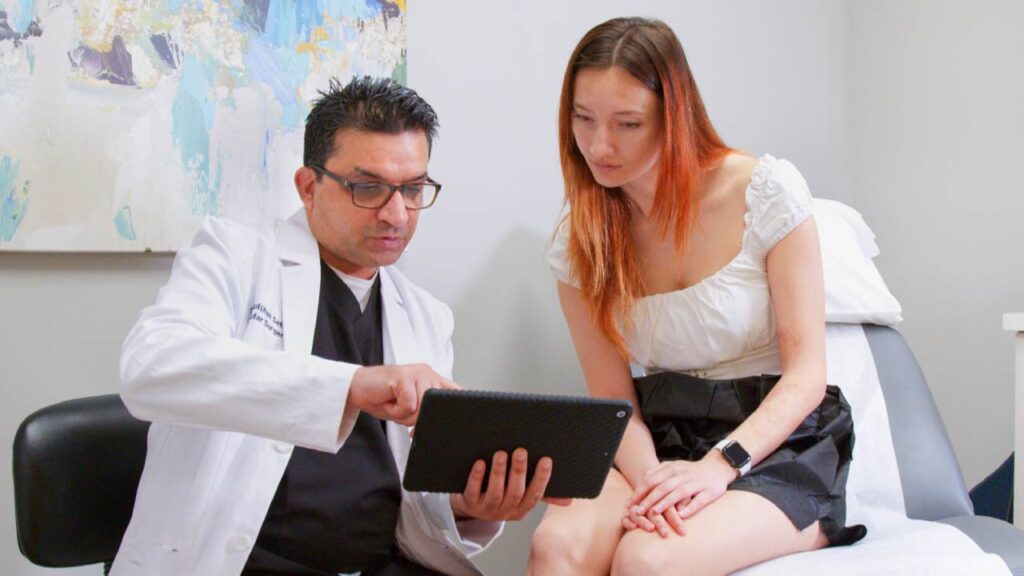What Is a Vascular Surgeon Called and What Does That Mean?
Vascular surgeons treat diseases and malfunctions of the circulatory system, which includes the veins, capillaries, and arteries. In addition to medical school, they’ve completed several years of residency in surgery, vascular surgery, or both. So, some of them can only perform vascular surgeries, while others can operate on other issues as well.
A degree from medical school is required to perform surgery. Board certification is not. So, look for a board certified doctor since this indicates a higher level of training and commitment to ongoing education. Board certification is arduous and not awarded to all who apply. Board certified vascular surgeons have been tested and verified as superior.
Vascular surgeons don’t only perform vascular surgery. And surgeons are not required for all vascular problems. Some diseases of the vascular system respond to less invasive tactics like medication and lifestyle changes. A good vascular surgeon will only recommend surgery when it’s the best solution. Book an appointment with Harvard-trained vascular doctors to determine the right treatment plan.

Do Vascular Surgeons Treat Both Arteries and Veins?
Arteries carry oxygenated blood from the heart to cells throughout the body. Capillaries transfer deoxygenated blood to the veins. And veins pump blood back to the heart to collect more oxygen and repeat the process. When there is an arterial issue, like hardening of the arteries, an arterial aneurysm, or a ruptured artery, vascular surgeons can intervene. Sometimes, that requires medication and lifestyle changes. Other times, it requires surgery.
Like the arteries, vascular surgeons can also treat issues with the veins, like blood clots, deep vein thrombosis, varicose veins, and spider veins. However, for vein issues, surgery is less necessary. Minimally invasive treatments have largely replaced surgery for veins. Patients with blood clots or complicated tortuosity in their veins might need surgery. For other patients, a less invasive approach is best. So, if you have vein issues, a vascular surgeon might not be necessary. Either see a minimally invasive vein doctor or choose a vascular surgeon who’s trained in minimally invasive methods.
Do Vascular Surgeons Treat All Vascular Problems?
Vascular surgeons treat a wide range of vascular problems, but not all of them. They do not treat blood vessels in the heart or brain. Once blood leaves these organs, vascular surgeons can treat them. For instance, they treat a heart artery called the aorta once it enters the abdomen. And they treat the carotid arteries that supply the brain, but not the blood vessels inside the brain.
They also do not routinely treat facial spider veins and other cosmetic issues with blood vessels. These are treated with non-invasive or minimally invasive techniques, rather than vascular surgery. They treat carotid artery disease and peripheral artery disease more often than venous diseases, since venous diseases rarely require vascular surgery.
Do You Need a Vascular Surgeon to Treat Your Blood Vessels?
Vascular surgery was once a common treatment for veins. Today, most varicose veins and spider veins are treated non-surgically. The introduction of techniques like sclerotherapy, radiofrequency ablation, endovenous laser ablation, vein adhesives, and mechanochemical ablation have made surgery far less necessary.
Vein doctors can now treat varicose veins with tiny needles and catheters that deliver medication, thermal energy, or cyanoacrylate glue directly to the vein’s walls. If you have a history of blood clots or certain complications, you might need surgery for varicose veins. Otherwise, you’ll likely receive a minimally invasive procedure to close your vein without cutting it out of your body.
For arterial diseases, surgery is also less common now. New medications and procedures enable doctors to treat arteries less invasively in many cases. However, arteries have a different structure than veins. They are larger and stronger and aren’t lined with valves to control blood flow like veins are.
Blood is pumped through arteries from the heart, so arterial blood flow is more forceful than blood flow in veins traveling back to the heart. An arterial rupture, tear, or clot can become life threatening more quickly with veins. So, surgery remains more necessary for certain arterial conditions than venous conditions.
Can Minimally Invasive Treatments Replace Surgery?
For many patients, minimally invasive treatments are best for venous and arterial issues. If you have vein disease and varicose veins, a surface treatment like topical lasers might not suffice. But a surgical procedure might be overly invasive. The best option for many patients is a treatment that goes more than skin deep but doesn’t cut the blood vessel out of the body. A minimally invasive vein doctor is trained to perform such procedures with great accuracy. They use ultrasound guidance to locate, treat, and observe the vein to ensure its closure.
Even vascular surgeons are moving away from large incisions in favor of smaller punctures to extract the vein. The goal of your vein doctor or vascular surgeon should be to resolve the issue with minimal damage, risk, expense, and recovery time. Minimally invasive vein treatments accomplish all of this.
Who Are the Best Vascular Doctors in New York?
All of our Centers of Excellence in New York are fully accredited and run by board certified vein doctors. Our physicians hold double or triple certification in fields like vein medicine, vascular surgery, and anesthesiology. Our team has a wide array of Ivy League training to treat all of your vascular issues.
We avoid surgery when possible, and we have a wealth of alternatives for you to choose from. Our vein specialists are award-winning doctors who take time to answer all of your questions and make vein treatments easy to understand. We’ll discuss each of your options and why we recommend them, so you’re involved in selecting treatment. Visit our state-of-the-art vein clinics in Midtown, the Financial District, or Long Island for world-class, affordable vein care.





